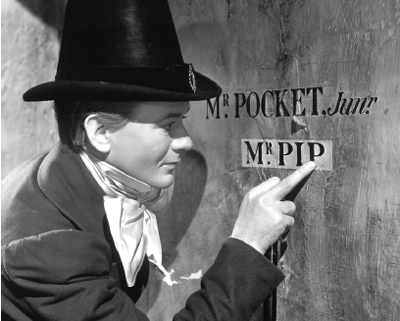
A still from the 1946 film Great Expectations
We’ve been looking at what happens to an actor when we introduce more and more meaningful circumstances and the students are talking about working with text.
One of the challenges of working with text is that you have an automatic expectation of how the scene or interaction is supposed to go. It’s written down, isn’t!? I know what I’m supposed to say next and I know where the scene ends. The problem with having expectations is that you stop being available to what the other actor is doing. When we’re given the choice between going with what is actually happening with the other actor and going with what we’ve worked out in our heads beforehand, we unconsciously hold onto the way we think the scene should go. This leads to actors who stop listening to each other, who aren’t allowing the other person to really affect them, who are basically stimulating themselves and working themselves up instead of letting the other person stimulate them.
One of the best things we can do as actors is be surprised by what is happening on stage around us. It is wonderful to watch, it is exhilarating to be a part of, and it is crucial for the scene to progress as naturally as possible.
So, what to do when you find yourself holding onto your preparation, whether an imaginary circumstance, an emotional preparation or a script? Let it go. Focus on your partner. Very simply take in what they are doing and how they are doing it. We cannot force ourselves to feel the “right” way or say the text “correctly” when we’re in the middle of it. It will just pull you further away from the moment and from the other person and make you more conscious of yourself.
